
3 minute read
ANGOLA
A major oil producer is trying to diversify its economy.
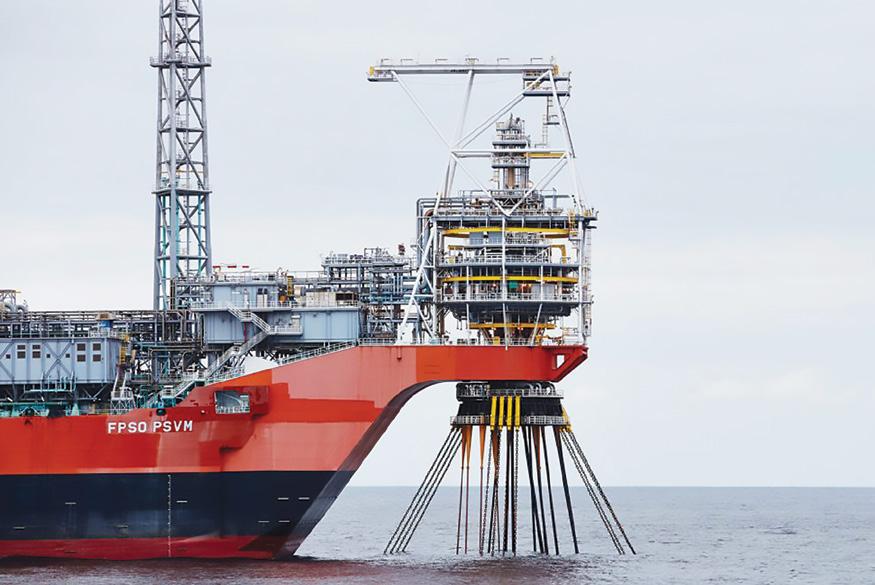
TThe death in 2022 of former president José Eduardo dos Santos brought to an end the era of a particular kind of anti-colonial politics in Angola. Although he gave up the presidency in 2017, the legacy of dos Santos and the influence of his children on national politics and economics sparked increasingly heated debate
His anointed successor, President João Lourenço, did not act as though he was beholden to dos Santos, despite the latter having held on to power for 38 years. Among the people fired by the new president were the former president’s daughter, Isabel dos Santos, who had been the chief of Sonangol, the state oil company. She moved to Spain.
MPLA won just 51% of the vote in the country’s fourth post-war elections held in 2022, with long-time rivals (and former civil war opponents) UNITA gaining 44%. The civil war started soon after Angola gained independence from Portugal in 1975 and lasted 27 years. The MPLA had the support of Cuba while UNITA were backed by South Africa, who eventually invaded Angola in an attempt to defeat MPLA and defend their occupation of Namibia (then known as South West Africa).
Capital: Luanda. Other towns/cities: Huambo, Lobito, Lubango. Population: 34.7-million (2022). Real GDP (PPP): $203.71-billion (2020). Real GDP per capita: $6 200 (2020). Currency: Kwanza. Regional Economic Community: Southern African Development Community (SADC), Community of Portuguese Language Countries (CPLP). Land mass: 1.25-million km2 Coastline: 1 600km. Resources: Bauxite, copper, diamonds, feldspar, gold, iron ore, petroleum, uranium, bananas, cassava, citrus, maize, pineapples, potatoes, sugar cane, sweet potatoes. Main economic sectors: Oil contributes 50% of GDP, more than 90% of the country’s exports and more than 70% of revenue collected by the government. Angola belongs to OPEC. Other sectors: Agriculture, mining, cement, basic metal products, fish and food processing, brewing, tobacco products, sugar, textiles. New sectors for investment: Fintech (laws relating to payments and telecommunications have been tightened), ICT. Key projects: The World Bank is supporting a Growth and Inclusion Development Policy Financing Project for Angola, with the aims of supporting the government of Angola to achieve more sustainable and inclusive growth, through a macro-financial and institutional environment that is conducive to private-sector-led growth and financial and social inclusion. Chief exports: Crude petroleum, diamonds, natural gas, refined petroleum, ships. Top export destinations: China, India, UAE, Portugal, Spain. Top import sources: China, Portugal, Nigeria, Belgium, US, South Africa, Brazil. Main imports: Refined petroleum, scrap vessels, meat, rice, palm oil.
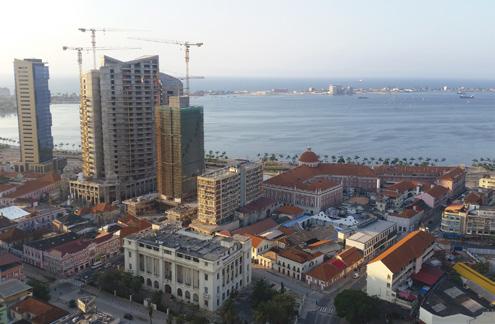
Infrastructure: Airports 32 (paved); railways 2 852km (2014); roadways 26 000km, of which 13 600km paved (2018). Major seaports: Cabinda, Lobito, Luanda, Namibe. LNG export terminal: Angola Soyo. Merchant marine: 54 (cargo 13, oil tanker 8, other 33, (2021). Pipelines: 352km gas, 85km liquid petroleum gas, 1 065km oil, 5km oil/gas/water (2013). ICT: Mobile subscriptions per 100 inhabitants: 45 (2020). Internet percentage of population: 36% (2020). ICT Development Index 2017 (ITU) ranking: 160 in world. Climate: North varies between dry, cool season (May to October) and hot, rainy season (November to April). South is semi-arid along the coast north to Luanda, which is part of a narrow coastal plain. The country shares two major rivers with its neighbours, the Zambezi and the Okavango. The province of Cabinda, a major oil-producing area, is an enclave separated from the rest of the country by a part of the Democratic Republic of the Congo.
Religion: Mostly Christian with a small majority Roman Catholic.
Global Africa Network
Founded in 2004, Global Africa Network Media (Pty) Ltd (GAN) is a business-to-business print and digital media company based in Cape Town, South Africa.
AFRICAN BUSINESS www.globalafricanetwork.com has an “ Africa Focus ” section and runs updated news and links to African investment projects and business news.
A proudly-African publisher of: Journal of African Business, a quarterly publication for the African market.
South African Business, an annual title, and nine regional publications profiling South Africa’s provinces as business and investment destinations.
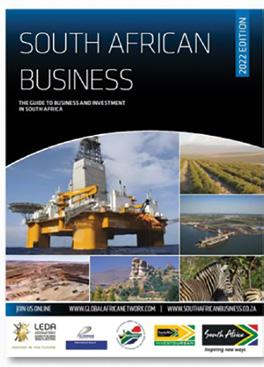
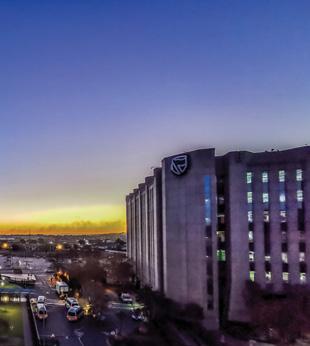
OTHER QUARTERLY TITLES INCLUDE: Blue Chip , which reaches all Certified Financial Planners (CFPs) in South Africa, and Blue Chip Digital at www.bluechipdigital.co.za. Opportunity , a niche businessto-business publication and official publication of the South African Chamber of Commerce and Industry (SACCI).
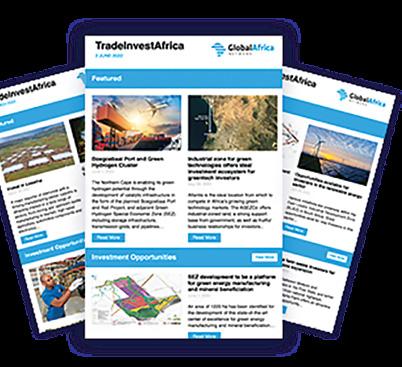
TradeInvestAfrica , a monthly digital publication promoting business, trade and investment opportunities in Africa to potential investors around the world.
Service, Leadership in Government , which has an audience throughout the public sector: Local, Provincial and National Government, as well as government agencies and parastatals.
GAN has considerable experience in creating and publishing custom print and digital publications, including targeted Investment Prospectuses. See www.globalafricanetwork.com/e-books










